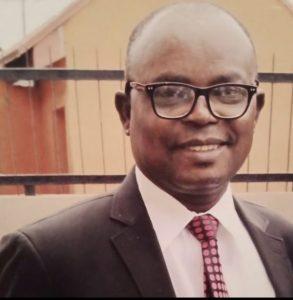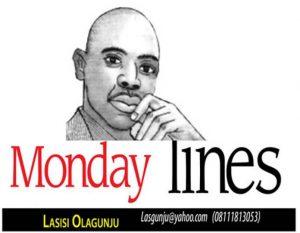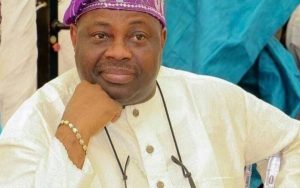Mrs. Zainab Ahmed, minister of finance, budget and national planning, dropped a familiar bombshell at the launch of World Bank Nigeria Development Update some weeks ago. Petrol subsidy was going to end, she said, and as a sweetener, a monthly transportation grant of N5,000 would be paid to the poorest 30 million to 40 million Nigerians. She didn’t tell us how the government arrived at this policy. Nigerians quickly whipped out their calculators and started having fun: N5,000 monthly to 40 milling people is N2.4trn per year. Meanwhile, the subsidy expenditure that we want to wipe out is about N1.8trn per year. The economics is atrocious.
That was how the subsidy war started again…
Anyone familiar with the history of fuel subsidy wars in Nigeria would be having a feeling of déjà vu. It usually starts with the government having revenue challenges. After taking a glance at its accounts, the government suddenly discovers that it is bleeding heavily in the petrol business — as the pump price is almost always lower than the cost. “Fellow Nigerians, in order to stop smuggling, we want to increase fuel price …” “Fellow Nigerians, by the time we spend the benefits, your lives will not remain the same…” Etcetera etcetera. In the real sense of it, government is broke. Expenses are high and revenue is low. Subsidy is one of the biggest items on the expenditure side. Simple English.
But how can you tell Nigerians their government is broke when they can see that their resources are still being burnt on chartered fights for political meetings, home and abroad? The legislature is still ballooning the budget. There is nothing in the behaviour of our leaders to show that we are broke. So why preach sacrifice to the people? Why should sacrifice be always one-sided? Why keep promising the poor “safety nets” when it always ends in tears? This cynicism, in my view, is a major reason for the resistance to the removal of subsidy. There is a ring of heckling anytime the issue is pushed to the front burner. In any case, many Nigerians believe fuel subsidy is their only benefit.
Some Nigerians even think the country is very rich and can afford to not only subsidise petrol consumption but also pay every citizen a monthly allowance of N1m. But anyone familiar with the reality knows that our public finances are in a bad place. There was a quarter in 2021 that we spent about 98 percent of our revenue on debt service alone. Something will have to give. At this rate, government may have to choose between paying salaries and subsidising petrol.
We may even have to borrow to pay for subsidy. This is not to downplay the corruption in the system, but that is not the whole story. In fact, the petrol subsidy regime is integral to the culture of corruption and waste.
There was something uneasy about the context of the announcement of the impending subsidy removal by the finance minister: it was at an event organised by the World Bank. If there is something activists and millions of Nigerians loathe, it is the involvement of the World Bank and International Monetary Fund (IMF) in our affairs. They are seen as agents of imperialism. Activists hold them responsible for our economic woes. The World Bank and IMF are always advocating retrenchment, removal of subsidies and cutting expenditure on social services. I would never recommend announcing subsidy removal at any event organised by the World Bank/IMF.
A major challenge is a way the government keeps framing all the issues around “subsidy”. It is a boring auto replay. I am not saying subsidy doesn’t exist — the stats are plain and frightening and undeniable. As long as the cost price is above the pump price, we do not need to go into unnecessary arguments. I am also not suggesting that subsidy does not encourage smuggling to neighbouring countries — arbitrage is a rational economic behaviour. My point of departure is the unending regurgitation of the old arguments that only succeed in dancing around the real issue at hand: deregulation. Telling us “you must pay more to stop smuggling” muddles up the issues.
When are we going to stop reducing the core policy of deregulation to a perennial debate on subsidy? You can say deregulation comes with subsidy removal. That is true. But deregulation can also come with price reduction. It is not a one-way thing. Government keeps painting the picture that petrol price will always go up and will always have to be subsidised. That is why we keep talking about N250bn monthly subsidy as if oil will always sell above $80/barrel. The messaging is problematic. It so happens that anytime government officials talk about subsidy, petrol price is about to go up. The bigger picture of deregulation, which is more important, is often relegated.

It is not as if Nigerians are new to deregulation. We deregulated the telecoms sector. We deregulated the pricing of diesel and aviation fuel. When I want to buy diesel, I often don’t know the price. I have bought diesel for between N220 and N340 within the same year. The price goes up and down in line with the dictates of crude prices. That is deregulation. Luxury buses in the fleet of Ekene Dili Chukwu, Ekwos, Ifesinachi and the rest run on diesel. They pay the full price and pass most to their passengers. The bus rapid transit (BRT) in Lagos state carries the most public passengers. The buses run on diesel. Nothing new there. We are not dealing with a policy unknown to humankind.
Of course, I know that petrol is politically sensitive in Nigeria and cannot be treated in the same brackets with diesel and telecoms. After all, we have turned petrol to a political hydrocarbon since the 1970s. As Bob Marley would have said, 45 years of history cannot be wiped away so easily. We have always made it look like we are protecting the poor with low petrol prices — while actually short-changing them. So, subsidy will always be politically sensitive. You cannot withdraw an age-old privilege and expect the people to fold their arms and not throw punches. That is why the labour unions have threatened to start the new year with nationwide protests against subsidy removal.
As the unions prepare to hit the streets, you cannot say they are unreasonable. They have a point. For one, they have the duty to fight for the wellbeing of their members. Moreover, the impression is that subsidy removal is designed to add to the sufferings of poor Nigerians who are already in severe pains. I was buying petrol recently and I randomly asked the attendant: “Do you know a litre is about N600 in Ghana (tax inclusive) and N162 in Nigeria — even though we are buying petrol in the same global market?” He fired back: “But their government does something for them, unlike Nigeria where government does nothing for us. The only benefit for poor Nigerians is fuel subsidy.”
Should we tell him? Ghanaians don’t get more from their government than Nigerians do from theirs, just that our neighbours do not have a culture of fuel subsidy and do not feel entitled to it. In Ghana, as in most countries, fuel prices go up and down in line with crude prices. In Nigeria, the subsidy culture is at the core of the resistance to deregulation. You cannot change a culture overnight, not when the people don’t trust their government to come good with “safety nets” promises. Moreover, you cannot deny that Nigerians will suffer in the aftermath of price hike. They can feel the pains immediately and will unfortunately be forced to wait in vain for the palliatives. We have a history.
In my view, Nigerians would endure the pains of deregulation if they trust their government to make good use of the benefits. When the Buhari administration increased petrol price in 2016, there was no single protest. Some said it was because those organising protests in the past were now supporters of this government. Well, who says a new generation of protest organisers should not fill the vacuum? My guess is that ordinary Nigerians trusted Buhari to manage the gains better than previous presidents. After all, Buhari used to kick against subsidy removal. If he now supported it and even went ahead to implement it, he must have known something he didn’t know before.
Interestingly, Buhari almost pushed deregulation across the last hurdle last year until COVID-19 happened. The economic hardship, followed by the End SARS uprising, probably derailed the policy.
The government was not ready to risk another rampage. What’s more, public trust had ebbed with the discovery of COVID-19 palliatives in warehouses while government was busy saying it had spent billions to give succour to the poorest Nigerians during the lockdown. These are things that erode trust. Nigerians would easily laugh at the promised N5,000 grant. I was not surprised when people started doing the math. It looks like a typical government promise not meant to be fulfilled.
What is the way forward? I wish I knew. One thing is sure: paying Nigerians to consume petrol is hurting government finances and the economy. We paid over $4bn to Nigerians to help them put petrol in their vehicles in 2021. That is basically what we did. Could the $4bn have gone into something else more beneficial to the people — like education, health and roads? The reasonable answer is yes.
But would the $4bn have really gone into education, health and roads? That is where the problem lies. From experience, most of the $4bn would have gone into financing waste and greed in government. That is the crux of the matter. This is why it is easy to stir up resistance.
Still, I would like to make these points: (1) transport costs will always go up whether or not petrol prices remain the same (2) Nigerians have shown over time that they are not really averse to deregulation as long as they will enjoy the benefits (3) government needs to initiate a decent conversation with the key stakeholders before implementing deregulation or announcing palliative measures (4) unions should be encouraged to propose how the fundamental problems with fuel pricing can be addressed forever so that we do not return to strikes and protests perennially. Regrettably, government has already bungled the whole thing, but it can still go back to the drawing board to save the country from the upheavals and the economic costs that come with strikes.
AND FOUR OTHER THINGS…
ONE MAN, ONE MATCHET
I understand the frustration of Governor Aminu Masari of Katsina state with the security situation in the north-west. But what problem does he think he is going to solve by “helping” residents acquire weapons to defend themselves against bandits? Let us even forget the fact that the bandits are battle-tested and understand the use of weapons better and may become more vicious. My worry is what residents can do with the weapons. Masari will unwittingly increase the population of bandits who may take over more states and advance to other parts of Nigeria. I don’t know how much thinking went into Masari’s policy but he may end up creating more problems for the country. Risky.
COVID CAUTION
We know that plagues come and go from time immemorial and we expect COVID-19 to follow the same pattern — either by disappearing completely or becoming not more than a regular flu. Many think that the emergence of the Omicron variant would be the final stage of the pandemic because it is “milder” and has spread across the world with speed to become dominant. I hope so. But the experts still have to find out if the “mild” symptoms are not because of vaccine protection rather than a weakened variant. I believe we should continue to be guided by science and adopt all possible safety measures while we await more findings. It is better to be safe than to be sorry. Caution.
AMAECHI VS JONATHAN
Rt Hon. Rotimi Amaechi, the minister of transportation, clearly needs to be more mature and civil. Having helped the APC oust President Goodluck Jonathan in 2015 and headed a strategic federal ministry for six years, Amaechi is still unable to enjoy his victory without gloating and throwing stones at a man who graciously accepted defeat. He keeps launching unprovoked attacks on Jonathan, who has carried himself with respect so far. Even President Buhari does not savage Jonathan. He only attacks the “16 years of PDP”. Amaechi needs to know that after 2023, Nigerians will judge this administration by its achievements rather than Jonathan’s failings. Obsession.
AND FINALLY…
There is a widespread misconception about “foreign reserve” that needs correcting. It is understood by many Nigerians to mean “foreign savings”. It is not unusual to hear boasts of how much “we left” in foreign reserve. Actually, foreign reserve is where Nigeria keeps its FX income, mostly from petroleum taxes and sale of crude oil. The central bank then provides the naira equivalent to be shared by the three tiers of government at FAAC. In other words, the foreign reserve has already been spent in naira! It is meant to settle our dollar obligations abroad and is a measure of our economic health in foreign trade. You gerrit? If you don’t gerrit, forgerrit. Happy new year. Cheers!






















